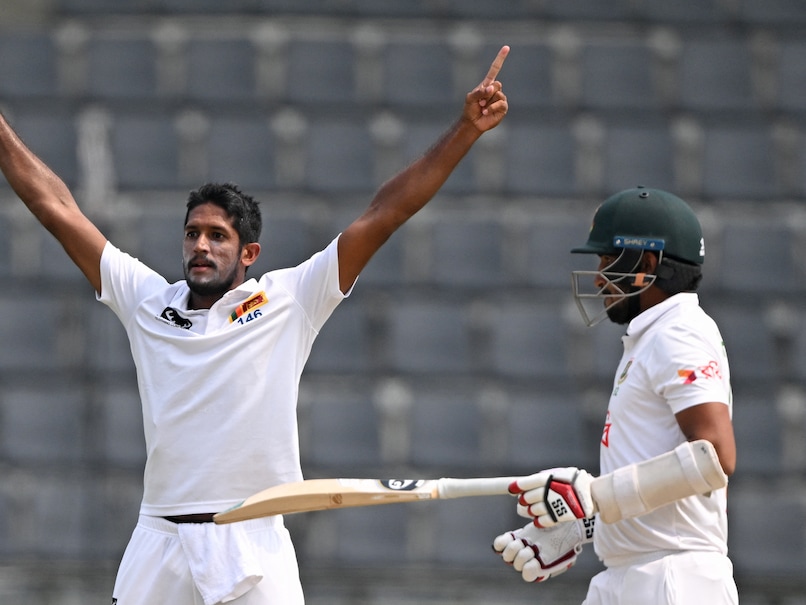Asitha Fernando has joined the squad as a replacement for Kasun Rajitha.© AFP
In-form pace bowler Kasun Rajitha is out of the second Test against Bangladesh due to a back injury, Sri Lanka Cricket said. The second and final Test starts in Chittagong on Saturday with tourists Sri Lanka leading 1-0 after their 328-run win in the opening match in Sylhet. Rajitha played a big role with eight wickets in two innings, including 5-56 in the second innings. Asitha Fernando has joined the selection as a replacement.
“Kasun Rajitha will not be available for the second Test match as the player has sustained an injury to his left upper back,” Sri Lanka Cricket said.
Fernando claimed 10 wickets the last time he played a Test match in Bangladesh, in 2022.
He last played a Test against Afghanistan in February.
He was initially ruled out of the Bangladesh series due to a hamstring injury, but recovered sufficiently to be included back in the squad for the second Test.
Sri Lanka has never lost a Test series to Bangladesh.
(This story has not been edited by WhatsNew2Day staff and is auto-generated from a syndicated feed.)
Topics mentioned in this article

